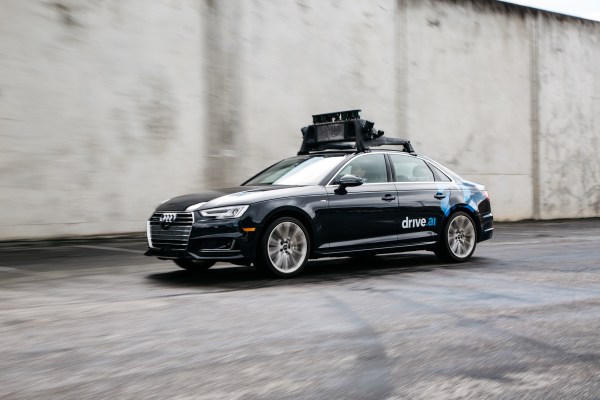Autonomous vehicle technology startup Drive.ai has raised $15 million in a new round from Grab and others, Southeast Asia’s largest Uber rival. The added funding will help Drive.ai expand internationally, and it plans to open a Singapore office in the coming months in order to provide a base of operations for considering a deployment of its self-driving cars in the country.
This isn’t yet a formal partnership between Grab and Drive.ai, though Grab has previously partnered with Boston’s NuTonomy to put self-driving vehicles on the road in Singapore. Instead, it’s an investment that will also involve Grab assisting Drive.ai with its evaluation of the local market for deployment of its tech, including facilitating partnerships between government and other local businesses.
In an interview, Drive.ai CEO Sameep Tandon called the effort to develop usable self-driving tech “a global space race,” and said that international expansion is important to the company as a result. The Singapore opportunity also came about thanks a lucky combination of factors, including meeting with the Grab team at home in California, and also a visit to Singapore by Drive.ai co-founder and president Carol Reiley.
“[Carol] visited Singapore last year around Christmas time, and met with Grab’s AV team around then,” Tandon explained. “Coincidentally we had several of Grab’s folks come out here, they were in the area so we gave them an AV ride. They became really excited about the long-term possibilities with us as well as how deep learning could make the self-driving car brain better. Once Anthony [Tan], Grab’s CEO came over it was pretty much a done deal at that point.”
As to why Singapore proved the right opportunity for Drive.ai’s first international office and expansion target, Tandon explained that a combination of factors make it a spot that’s ideal for their own goals and development plans.
“We look at Singapore as a country, it’s been a technological juggernaut,” Tandon said. “When innovations happen in the region, basically they start in Singapore and then move out to other places within the region, whether it’s Indonesia, Vietnam or China. What’s also really interesting to us about Singapore is they have this sort of existential problem here – for them autonomous driving is not a matter of ‘if,’ it’s a matter of ‘when.’ They have this high population density in a very small physical area, and the extra challenges that go along with that.”
This has resulted in a government and transportation agencies that are very supportive of self-driving technology companies, and trying to find innovative solutions to these problems. They’re already working with a number of these agencies to flesh out what their presence in the country will look like.
Drive.ai is fresh off a partnership with Lyft and a $50 million funding round, and earlier this year it revealed more about how its approach is different from others working on self-driving – thanks to a specific focus on creating a retrofit kit that can be installed in existing fleets to give them autonomous capabilities. This should help it achieve more of a global presence, and Tandon says they’ll continue to keep an eye on worldwide hot spots when it comes to autonomous technology opportunities.
